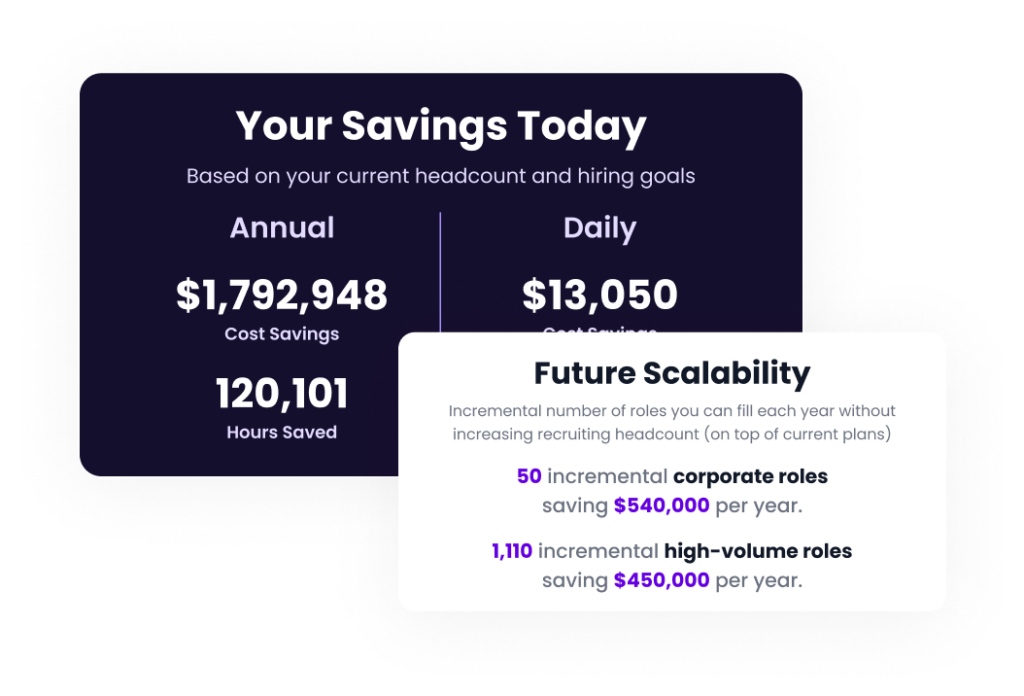A word of advice for the modern-day hiring team: get comfortable with change. Because if there’s one thing that we’ve learned in recent years, it’s that the hiring landscape can evolve in an instant. GoodTime’s Co-founder and Head of Company Strategy Ahryun Moon met with RecTech Podcast’s Chris Russell to discuss recent and upcoming shifts in the hiring industry, and how GoodTime helps teams adapt to the changing times.
If you’d like to hear the conversation in full, the podcast episode can be found here. Read on for a quick rundown.
“Everything has shifted so quickly and so fast over the last couple of years. Even the most tenured HR leaders with multiple decades of experience are still trying to figure things out.”
— Ahryun Moon, Co-founder and Head of Company Strategy at GoodTime
Tumultuous Recent Years in Hiring
A lot has changed in the hiring industry and job market—where do we even start? For one, companies felt the sting of the Great Resignation back in 2021, and the phenomenon is still going strong. A record-breaking 4.5 million people in the U.S. quit their jobs in March 2022.
Ahryun noted that based on GoodTime’s conversations with customers, the “big quit” isn’t limited to just the U.S. It’s happening across the globe. And that’s not the only worldwide hiring trend; the entire world is also facing a severe shortage of knowledge workers. In February 2022, there were 5 million more job openings than unemployed workers in the U.S. alone. This all culminates into a hyper-competitive job market.
On top of these changes, job seekers have drafted up new demands, heralding the next era of recruitment tactics.
“Now that we’re working remotely and in hybrid mode, all the past lure of office spaces, the physical spaces, those perks are not very relevant anymore,” Ahryun said.
Instead of placing value on in-office benefits, candidates now vet employers on elements such as DEIB, work-life flexibility, vision, and mission. Above all, candidates want to connect with employers.
Upcoming Changes in the Hiring Landscape
An outpour of hiring freezes, slowdowns, and layoffs characterize the latest changes in the job market. Major tech companies like Uber and Twitter slowed their hiring, while startups like Klarna and Carvana laid off employees.
Ahryun’s take? The market is correcting itself. She noted that it doesn’t look like these recent events in the market will remain as permanent trends. From her view, it seems that the market will stabilize over time.
All things considered, the market’s recent volatility shouldn’t come as a surprise. In many ways, 2021 created an unsustainable environment.
“Last year was crazy, a whole slew of unicorns had been born,” Ahryun said. “Some companies are extremely solid companies that are worthy of becoming unicorns, and some probably not in terms of the metrics.”
In opposition to the downturn in Silicon Valley, there’s several forces at play that will keep other companies hiring. A severe lack of knowledge workers remains within an extremely competitive hiring market, Ahryun added. Companies will continue hiring—just not as recklessly. The smartest companies will implement the best TA tech to hit the ground running and prepare for future growth.
How GoodTime Has Adapted to the Shifts
Talent teams aren’t the only ones that must adapt to the ever-changing hiring landscape. In order to solve the most pressing issues facing companies, TA tech must also evolve with the times.
GoodTime Hire has changed quite a lot to respond to the latest customer needs, Ahryun said. Hire uses Candidate Relationship Intelligence, which includes two main focus areas: speed and relationships. The focus on speed comes from the increasingly fast-paced talent competition.
“Nowadays, candidates get about four offers on the table within about 18 days of their job search, which is crazy,” Ahryun said.
The fastest talent team is often the team that snags the best candidates. On the flip side, a slow hiring process heightens the risk of losing qualified candidates in the middle of the funnel. To satisfy the need for speed, Hire’s automation removes any time lag that occurs on both the recruiting team and candidate side.
Hire’s focus on relationships stems from the need to form meaningful connections with candidates to win top talent. As a way to cultivate these connections, Hire makes data-driven decisions to place the right interviewers into each and every interview. Better yet, one of the latest features, Candidate Pulse, gathers candidate sentiment throughout the interview process to help teams better understand the quality of their relationships.
Does interview scheduling automation make sense for my team?
ROI is key. This is not a time to invest in software that won’t bring you immediate value. So let’s eliminate the guesswork with our free ROI calculator.

Want the Latest Insights? Read the 2023 Hiring Insights Report
Keeping up with the constant flow of changes in the hiring landscape can feel overwhelming. Luckily, our 2023 Hiring Insights Report is now available. 500+ HR leaders, 1,000s of real findings, 1 industry-leading report. Read the report today.




